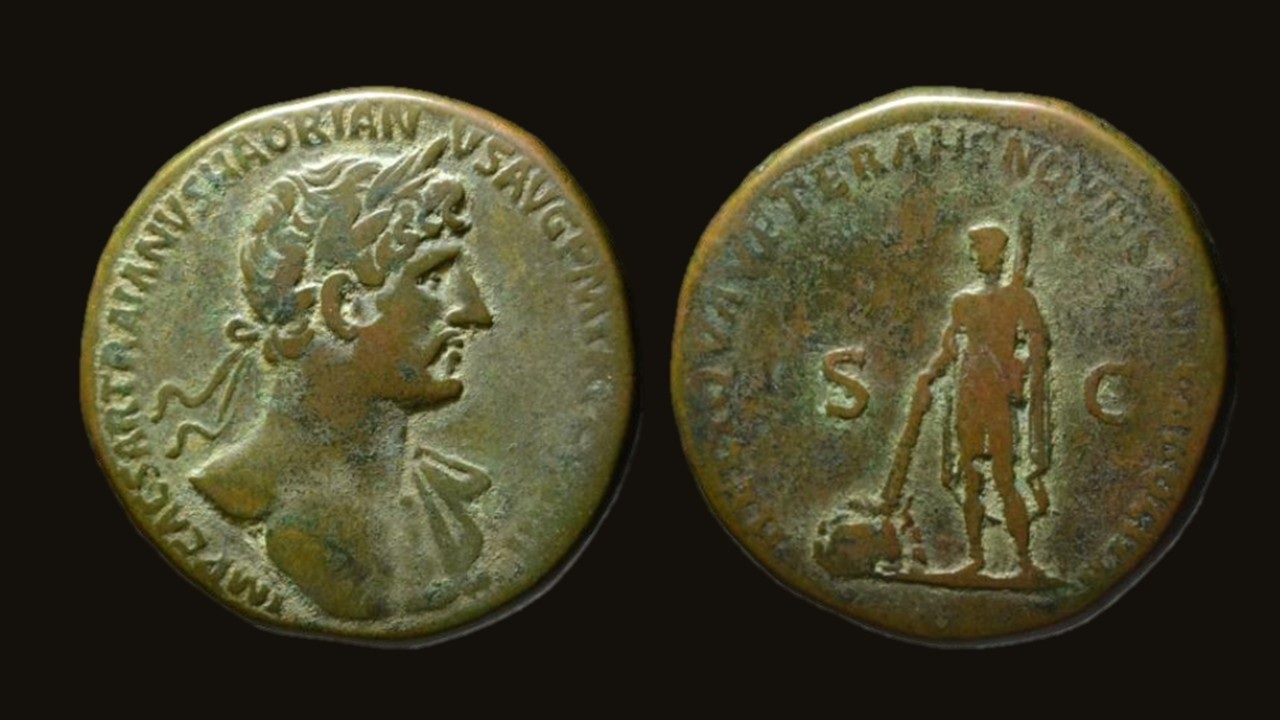.
Old School
—for an elite British boarding school
The rooves are dark and lichen-strewn and damp,
the window panes are flecked with drops of rain;
a summer downpour’s welling while the stamp
of lightning flash and thunderclap engrain
their image and their sound. The chapel bell
is chiming out the quarter hour, which brings
the pupils to the quad, yet naught can quell
the coming storm as Mother Nature sings.
No flimsy-ribbed umbrella nor cagoule
shall keep the raging elements at bay;
instead, the evening roll call at the school
is halted for a safer place to stay.
And so, a country’s leadership to be
before a power mightier learn to flee.
.
.
Those Halcyon Days of Metal Detecting
A bottle cap, an Anglo-Saxon hoard;
My old metal detector often found
The former. With each beep my spirits soared,
For fortunes lay concealed beneath the ground.
A young Queen Vic halfpenny, tawdry rings;
A cloak button of pewter from the time
Of coaching; digging up our former kings,
Their minted faces worn and dulled with grime.
Through blazing heat, through wind and rain and hail,
I searched, I dug, I sighed, for still that stash
Evaded me; and then a holy grail
Of sorts curtailed my pastime in a flash.
A Roman coin, by chance unearthed upon
A coastal path neath Devon’s searing sun
Saw one great goal achieved and passion gone—
My days of hunting treasure trove were done.
.
.
Paul A. Freeman is the author of Rumours of Ophir, a crime novel which was taught in Zimbabwean high schools and has been translated into German. In addition to having two novels, a children’s book and an 18,000-word narrative poem (Robin Hood and Friar Tuck: Zombie Killers!) commercially published, Paul is the author of hundreds of published short stories, poems and articles.















Love the palpable atmosphere and the irony. It’s 3-dimensional.
Thanks for reading and commenting, Michael. I wrote ‘Old School’ at a top boarding school where I was working over the summer. A colleague had just been accused of being ‘old school’ (which I took as a compliment) and a thunderstorm started raging during which rollcall got cancelled.
Thanks for reading and commenting, Michael.
Although Old School is based on my experiences this past July, with some interpretation, the metal detecting poem is entirely true, written partly for my daughter who’s so interested in Family history.
Paul, I wonder if both poems are from your own experiences both in a boarding school and in hunting for treasure with a metal detector. In any event they both reflect reality in a creative way with well-honed words and rhyme providing perfectly imaged detail.
Both are based on true events, especially the metal detecting poem, which I wrote partly for my younger daughter who enjoys digging up the family history. I never went to a posh boarding school (quite the opposite), but in July was teaching in one when the described thunderstorm arrived, disrupting rollcall.
Two enjoyable pieces here, Paul, each with a very satisfying conclusion. “Old School” intrigued me, because I couldn’t see where it was leading; but then the clever final couplet struck home. (So much for the playing fields of Eton.) I was equally amused by your reminiscences of metal detection with, again, a final twist. (Job done, box ticked.) Thanks for sharing.
In retrospect, it was a shame about the metal detecting. I was never enough of a team player to join a club.
Thanks for reading and commenting.
These are two beautiful poems. I’m especially pleased by the diction — in the sonnet “Old School,” Paul makes use of three unusual terms. There is the earlier and less common plural form “rooves,” and the French “cagoule” (hood or head covering), and the rare verb “engrain.” In “Those Halcyon Days…” the second quatrain is a complete apposition to the word “fortunes” in the first quatrain. A lengthy apposition of this sort (with a main verb absent) is very effective in a descriptive list like this. The final quatrain, with its discovery of a Roman coin, ends the poem with a satisfying surprise.
Thanks for reading and commenting, Joseph. When I was at primary school, I’m sure the accepted plural of ‘roof’ was ‘rooves’. ‘Roofs’ just sounds so wrong to my ear.
Thanks for reading and for your valuable observations.
I think it must be a difference between American and U.K. pronunciation. Both plural forms are recognized in many dictionaries.
Paul, the final couplet turns “Old School” into a profound poem of wide application, no matter which old school happened to be the setting for your composition. This sonnet gives an excellent demonstration of sonnet critic John Fuller’s contention that the volta of a Shakespearean sonnet happens at the couplet. I very much like the implication of a lesson learned in the “old school” manner (from nature) by the disruption of an old school ritual.
Metal detectors (your kind and others) have passed out of date. At an airport recently, a traveler wearing a medical device needed to be checked by one, as the new high-tech hands-up scanner would damage the device. The forlorn metal detector stood there roped off, because no staff knew how to use it!
Old School was interesting to write. In July I was working at a posh public school. One of my colleagues was berated for being ‘old school’ (which I count as a compliment), then shortly afterwards, while I was conducting a private class, we got hit by a thunderstorm that broke up rollcall. I used this as the metaphor for the final couplet. I always spend an inordinate amount of time on that final couplet to avoid damp squib complex.
Thanks for reading and commenting.